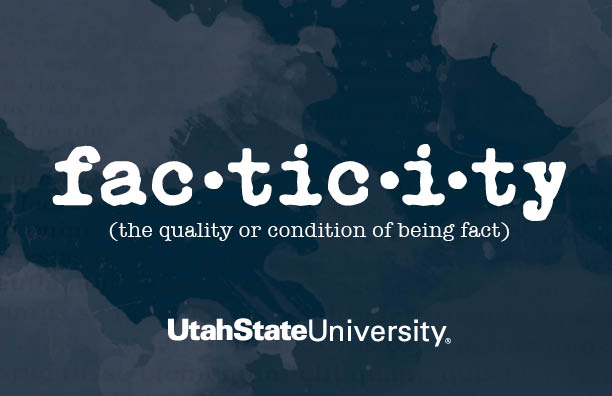Truth and Truthiness
Location
Eccles Conference Center Auditorium
Event Website
http://digitalcommons.usu.edu/facticity/
Start Date
3-13-2018 5:00 PM
End Date
3-13-2018 6:30 PM
Streaming Media
Description
The title of this panel refers to a word, “truthiness,” that Stephen Colbert first used on the mock news show The Colbert Report. Truthiness refers to statements that an individual believes to be true based on feelings, opinions, or perceptions rather than on the basis of evidence, logic, or reasoned examination; statements that seem or feel like they are true, even if they are not necessarily true. This panel will discuss the tension, if not outright conflict, between truth and truthiness in the media and in popular opinion. How do we distinguish between these concepts? Can we as a society find a consistent means of arriving at a baseline of accepted, evidence-based knowledge, from which good-faith discussions can proceed? Is it possible (as Aristotle might have put it) to ascend from the world of mere opinion to knowledge about social, political, economic, and scientific facts or truth? If so, how do we do so? How do we encourage critical thinking, not only in the media, but in public life and in education? These are just some of the questions that this panel will address.
Truth and Truthiness
Eccles Conference Center Auditorium
The title of this panel refers to a word, “truthiness,” that Stephen Colbert first used on the mock news show The Colbert Report. Truthiness refers to statements that an individual believes to be true based on feelings, opinions, or perceptions rather than on the basis of evidence, logic, or reasoned examination; statements that seem or feel like they are true, even if they are not necessarily true. This panel will discuss the tension, if not outright conflict, between truth and truthiness in the media and in popular opinion. How do we distinguish between these concepts? Can we as a society find a consistent means of arriving at a baseline of accepted, evidence-based knowledge, from which good-faith discussions can proceed? Is it possible (as Aristotle might have put it) to ascend from the world of mere opinion to knowledge about social, political, economic, and scientific facts or truth? If so, how do we do so? How do we encourage critical thinking, not only in the media, but in public life and in education? These are just some of the questions that this panel will address.
https://digitalcommons.usu.edu/facticity/2017/all2017/4



Comments
Moderator: Tony Peacock